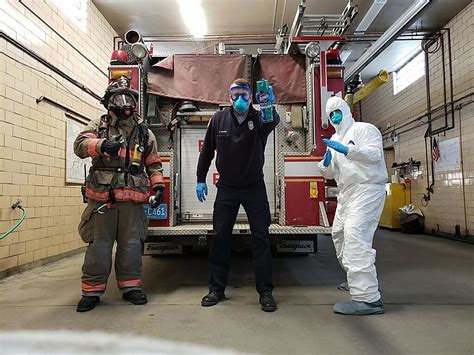Welcome to our latest blog post, where we’ll be delving into the fast-paced and critical field of emergency medicine. From life-saving procedures to handling trauma cases and disaster management, emergency physicians are at the forefront of providing immediate care and making split-second decisions that can be the difference between life and death. In this post, we’ll explore the challenges and rewards of a career in emergency medicine, the impact of advanced technology on patient care, and the important role that emergency medicine plays in public health promotion. We’ll also take a look at the emotional toll of working in this high-pressure environment and the ongoing research aimed at improving patient outcomes. Join us as we uncover the vital role that emergency medicine plays in bridging the gap between hospitals and pre-hospital care, and the crucial impact it has on the healthcare industry as a whole.
Table of Contents
Life-saving procedures performed by emergency physicians
Emergency physicians are trained to perform a variety of life-saving procedures in high-pressure situations to stabilize patients and provide critical care.
One of the most crucial procedures performed by emergency physicians is cardiopulmonary resuscitation (CPR), which is used to revive patients who have experienced cardiac arrest. This procedure requires quick decision-making and precise execution to increase the chances of survival.
In addition to CPR, emergency physicians are also skilled in airway management, which involves ensuring a patient’s airway is clear and maintaining proper breathing. This can involve intubation, which is the insertion of a tube into the patient’s airway to assist with breathing.
Emergency physicians are also trained to perform emergency surgeries and procedures to control bleeding, relieve pressure on the brain, and stabilize other life-threatening injuries. These procedures can make a significant difference in a patient’s outcome, especially in situations where time is of the essence.
The importance of quick decision-making in emergency medicine
Emergency medicine is a fast-paced, high-pressure field that requires quick decision-making in order to save lives. When patients arrive in the emergency department, they are often in critical condition and in need of immediate attention. This is why emergency physicians must be able to rapidly assess a situation, make informed decisions, and act decisively to provide the best possible care.
Time is of the essence in emergency medicine, and every second counts. Whether it’s a trauma case, a cardiac emergency, or a stroke, the ability to make quick decisions can mean the difference between life and death for a patient. In these critical moments, emergency physicians must rely on their training, experience, and critical thinking skills to determine the best course of action and provide life-saving interventions.
Furthermore, quick decision-making is essential in prioritizing patient care in the emergency department. With limited resources and a constant influx of patients, emergency physicians must be able to quickly assess the severity of each case and allocate resources accordingly. This means that they must be able to make rapid decisions about which patients require immediate attention and which can wait, in order to ensure that the most critical cases receive timely care.
In conclusion, the importance of quick decision-making in emergency medicine cannot be overstated. The ability to think quickly, act decisively, and prioritize patient care is crucial for providing life-saving treatment in the fast-paced and high-pressure environment of the emergency department.
Handling trauma cases in the emergency department
When it comes to handling trauma cases in the emergency department, quick and efficient decision-making is crucial. Emergency physicians are trained to assess and treat trauma patients in high-stress situations, where every second counts. From car accidents to gunshot wounds, the emergency department is the first line of defense for patients facing life-threatening injuries.
One of the most important life-saving procedures performed by emergency physicians in trauma cases is the rapid assessment of the patient’s condition. This involves evaluating airway, breathing, and circulation, commonly known as the ABCs of trauma care. Effective management of these vital functions can significantly improve the patient’s chances of survival.
In addition to the clinical aspects, the emotional toll of working in the emergency department cannot be overlooked. Emergency medicine is a demanding field that requires healthcare professionals to remain calm and focused in the face of chaos and uncertainty. The ability to handle trauma cases with empathy and compassion is as important as medical expertise.
Overall, the role of emergency medicine in handling trauma cases is indispensable. The emergency department serves as a critical link in the chain of care for trauma patients, bridging the gap between pre-hospital emergency care and specialized trauma centers. Through advanced technology and continuous education, emergency physicians strive to improve patient outcomes and provide timely and effective treatment in the most challenging circumstances.
The role of emergency medicine in disaster management
Emergency medicine plays a crucial role in disaster management, as it is responsible for providing immediate medical care to those affected by natural or man-made disasters. Whether it’s a hurricane, earthquake, or terrorist attack, emergency physicians are at the forefront of responding to these critical situations.
The quick decision-making skills of emergency medicine professionals are put to the test during disasters, as they must assess and prioritize the treatment of patients based on the severity of their injuries. This ability to triage effectively can mean the difference between life and death in a mass casualty event.
Furthermore, the integration of advanced technology in emergency medicine has greatly improved disaster response. From mobile medical units equipped with telemedicine capabilities to remote monitoring devices, these technological advancements have enhanced the efficiency and effectiveness of emergency medical care during disasters.
In addition to providing direct medical care, emergency medicine also plays a crucial role in coordinating disaster response efforts and collaborating with other agencies and organizations involved in disaster management. This interdisciplinary approach ensures that resources are allocated efficiently and that the medical needs of those affected by the disaster are met.
Emergency medicine: a challenging but rewarding career
Emergency medicine is a demanding and fast-paced field that requires doctors to make quick decisions and manage high-stress situations on a daily basis. From treating patients with life-threatening injuries to handling mass casualty incidents, emergency physicians must be prepared for anything that comes through the doors of the emergency department.
Despite the challenges, a career in emergency medicine can be incredibly rewarding. The ability to save lives in critical moments, provide immediate care to those in need, and make a real difference in the community can be incredibly fulfilling for those who choose to pursue this career path.
Emergency physicians are often at the forefront of medical innovation and are constantly learning and adapting to new technologies and treatment methods to improve patient outcomes. This dynamic and ever-evolving nature of emergency medicine means that no two days are the same, making it an exciting and fulfilling career choice for those who thrive in high-pressure environments.
At the end of the day, the challenges of working in emergency medicine are outweighed by the satisfaction of knowing that your work has a direct and immediate impact on the lives of others. For those who are passionate about making a difference and are willing to take on the demanding nature of the job, a career in emergency medicine can be both challenging and incredibly rewarding.
Advanced technology and its impact on emergency medicine
Advanced technology has revolutionized the field of emergency medicine in recent years, enhancing patient care and improving outcomes. One of the most significant impacts of technology in emergency medicine is the use of telemedicine, which allows emergency physicians to remotely consult with specialists and provide advanced care to patients in rural or underserved areas.
Additionally, medical imaging technology has greatly advanced, enabling emergency physicians to quickly and accurately diagnose and treat traumatic injuries and critical medical conditions. From CT scans to ultrasound machines, these technologies have greatly improved the speed and accuracy of diagnosing and treating patients in the emergency department.
Moreover, the use of electronic health records (EHR) has streamlined the documentation and sharing of patient information, allowing for more efficient and coordinated care among different healthcare providers. This has led to a significant reduction in medical errors and improved patient safety.
Furthermore, the use of medical equipment such as defibrillators, ventilators, and cardiac monitors has greatly improved the ability of emergency physicians to stabilize and treat critically ill patients, ultimately saving lives in emergency situations.
The role of emergency medicine in public health promotion
Emergency medicine plays a crucial role in public health promotion by providing immediate care to individuals in emergency situations. Emergency physicians are trained to quickly assess and stabilize patients who may be experiencing life-threatening conditions, thereby preventing further complications and promoting overall community health.
In addition to providing urgent medical care, emergency medicine also contributes to public health promotion by educating the community on injury prevention, first aid, and disaster preparedness. Through outreach programs and community partnerships, emergency physicians are able to raise awareness and promote healthy behaviors that can prevent accidents and injuries, ultimately reducing the burden on the healthcare system.
Furthermore, emergency medicine plays a key role in identifying and responding to public health emergencies such as infectious disease outbreaks, natural disasters, and mass casualty incidents. By coordinating with public health agencies and other healthcare providers, emergency physicians can help mitigate the spread of disease, provide necessary medical interventions, and ensure the safety and well-being of the community.
Overall, the role of emergency medicine in public health promotion is essential for addressing the immediate medical needs of individuals and communities, as well as promoting proactive measures to prevent injuries and illnesses. Through patient care, education, and emergency preparedness, emergency medicine contributes to the overall health and well-being of the public.
Emergency medicine: bridging the gap between hospitals and pre-hospital care
Emergency medicine plays a crucial role in bridging the gap between hospitals and pre-hospital care, ensuring that patients receive the necessary treatment and care as quickly as possible.
One of the key responsibilities of emergency physicians is to stabilize patients who are in critical condition and prepare them for transfer to the hospital for further treatment. This coordination between pre-hospital care and hospital care is essential for ensuring that patients receive timely and appropriate medical attention.
Emergency physicians are trained to make quick decisions and provide life-saving interventions, such as intubation, chest tube insertion, and rapid administration of medications, to stabilize patients before they are transported to the hospital. This seamless transition between pre-hospital care and hospital care is critical in ensuring the best possible outcomes for patients.
Additionally, emergency medicine also plays a role in educating and training pre-hospital care providers, such as paramedics and emergency medical technicians, to ensure that they are equipped to provide the necessary care and treatment before patients reach the hospital. This collaboration and communication between all healthcare providers involved in the care of a patient are essential in bridging the gap between pre-hospital care and hospital care.
Emergency medicine research: improving patient outcomes
Emergency medicine research plays a crucial role in improving patient outcomes by equipping healthcare professionals with better treatment options and protocols. Through rigorous studies and clinical trials, researchers are able to identify new drugs, therapies, and interventions that can significantly enhance the quality of care provided to patients in emergency settings.
Additionally, research in this field also aims to improve the overall efficiency and effectiveness of emergency medical services, ensuring that patients receive timely and appropriate care when they need it the most. By exploring innovative techniques and technologies, researchers are constantly striving to enhance the delivery of emergency care, thereby minimizing the negative impact of medical emergencies on patients’ health and well-being.
Moreover, emergency medicine research also focuses on identifying and addressing gaps in the current healthcare system, with the aim of reducing medical errors, improving diagnostic accuracy, and enhancing overall patient safety. By shedding light on the specific challenges faced by emergency medical personnel, researchers are able to develop tailored solutions that can positively impact patient outcomes across various emergency care scenarios.
Ultimately, the findings and advancements resulting from emergency medicine research contribute to the continuous improvement of patient outcomes, ensuring that individuals in need of critical medical attention receive the best possible care and support during times of crisis.
The emotional toll of working in emergency medicine
Working in emergency medicine can be incredibly rewarding, but it also comes with a heavy emotional toll. Emergency physicians often have to make difficult decisions under extreme pressure, and the weight of these decisions can take a toll on their mental well-being. The constant exposure to trauma and life-threatening situations can lead to emotional fatigue, burnout, and even post-traumatic stress disorder.
Furthermore, the intensity of the work can make it difficult for emergency physicians to switch off when they leave the hospital. They may find themselves constantly worrying about their patients and replaying challenging cases in their minds. This can lead to persistent anxiety and difficulty in maintaining a healthy work-life balance.
It’s important for emergency physicians to prioritize their mental health and seek support when needed. Many hospitals now offer programs to help their staff cope with the emotional demands of their work, including access to mental health resources and counseling services. Open communication and peer support can also play a crucial role in helping emergency physicians process their emotions and prevent burnout.
Ultimately, the emotional toll of working in emergency medicine is a very real and significant aspect of the profession. It’s essential for both individuals and healthcare organizations to acknowledge and address the emotional challenges that come with this line of work, in order to ensure the well-being of those dedicated to saving lives in crisis situations.





